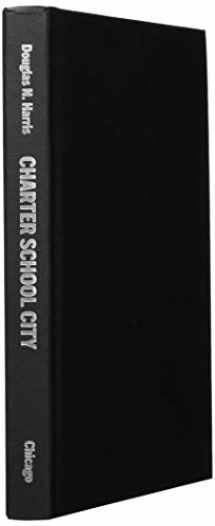
Charter School City: What the End of Traditional Public Schools in New Orleans Means for American Education
Book details
Summary
Description
Product Description In the wake of the tragedy and destruction that came with Hurricane Katrina in 2005, public schools in New Orleans became part of an almost unthinkable experiment—eliminating the traditional public education system and completely replacing it with charter schools and school choice. Fifteen years later, the results have been remarkable, and the complex lessons learned should alter the way we think about American education. New Orleans became the first US city ever to adopt a school system based on the principles of markets and economics. When the state took over all of the city’s public schools, it turned them over to non-profit charter school managers accountable under performance-based contracts. Students were no longer obligated to attend a specific school based upon their address, allowing families to act like consumers and choose schools in any neighborhood. The teacher union contract, tenure, and certification rules were eliminated, giving schools autonomy and control to hire and fire as they pleased. In Charter School City, Douglas N. Harris provides an inside look at how and why these reform decisions were made and offers many surprising findings from one of the most extensive and rigorous evaluations of a district school reform ever conducted. Through close examination of the results, Harris finds that this unprecedented experiment was a noteworthy success on almost every measurable student outcome. But, as Harris shows, New Orleans was uniquely situated for these reforms to work well and that this market-based reform still required some specific and active roles for government. Letting free markets rule on their own without government involvement will not generate the kinds of changes their advocates suggest. Combining the evidence from New Orleans with that from other cities, Harris draws out the broader lessons of this unprecedented reform effort. At a time when charter school debates are more based on ideology than data, this book is a powerful, evidence-based, and in-depth look at how we can rethink the roles for governments, markets, and nonprofit organizations in education to ensure that America’s schools fulfill their potential for all students. Review "Examining the rebuilding of New Orleans public schools following the devastation of Hurricane Katrina in 2005, Harris makes the case that improvement in educational offerings since then are linked to the decision to make practically all rebuilt schools operate under an independent charter. Navigating carefully between advocates and opponents of charter schools, he notes the academic gains children have made under the new regime, but he also mentions the decimation of New Orleans’s Black middle class, as African American public school teachers were replaced by young, white teachers who came from out of town. . . . Recommended." ― Choice“Anyone interested in diving more deeply into the current school debates without the noise from overheated political rhetoric will find Charter School City an excellent starting point.” ― Washington Independent Review of Books“The schools in New Orleans have gotten better faster than perhaps any other district in the country. To see this progress, in the wake of the trauma and devastation from Hurricane Katrina, is just awe-inspiring. In this ground-breaking book, Harris provides a full and careful picture of how the community did it and what others can learn from it. New Orleans shows us what’s possible, and it gives all of us reason for hope.” -- Arne Duncan, managing partner, Emerson Collective and former US Secretary of Education"Harris has penned the authoritative take on the grand educational experiment of post-Katrina New Orleans. Combining rigorous research with a firm grasp of on-the-ground developments, he explains the educational outcomes and explores what they mean for school improvement writ large. He has delivered an invaluable resource for everyone concerned with the practice


We would LOVE it if you could help us and other readers by reviewing the book
Book review



